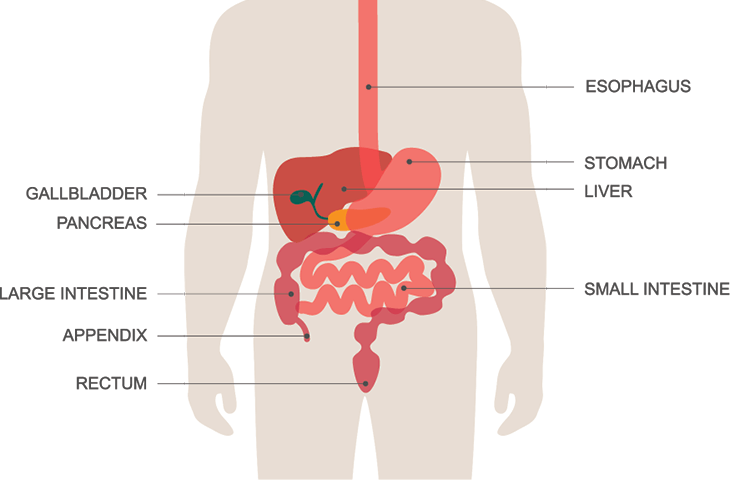Introduction
Bowel treatment training is a critical facet of healthcare, especially for people with complex requirements that include those with stomas or ostomies. Recognizing the principles of effective bowel care management can considerably boost the quality of life for these individuals, along with provide comfort to caretakers. This article, labelled "Bowel Care Training 101: Key Principles for Effective Monitoring," intends to gear up readers with essential expertise regarding bowel care training, including its relevance, numerous training courses readily available, and finest techniques.
Whether you are a caretaker searching for advice or a medical care expert seeking to boost your skills, this comprehensive overview will act as a beneficial resource.
Understanding Bowel Treatment Training
What is Digestive tract Treatment Training?
Bowel treatment training incorporates education and learning and functional guidance on handling bowel functions efficiently. It entails learning about different methods and strategies matched to private needs, making certain health and comfort. This sort of training is especially important in setups like the NDIS (National Handicap Insurance Policy Plan) where specialized care is required.
Why is Bowel Treatment Important?
Managing bowel wellness is important not just for physical health but additionally for emotional health and wellness. Issues such as bowel irregularity or diarrhea can result in discomfort and impact one's day-to-day activities. Correct bowel care management provides relief and boosts total quality of life.
Key Components of Effective Bowel Treatment Management
Assessment and Individualized Treatment Plans
Creating an individualized treatment plan begins with thorough evaluations. What details needs does the individual have? Recognizing these requirements allows caregivers to tailor the technique accordingly.
Education on Typical Digestive tract Functioning
Educating both patients and caregivers regarding what comprises normal bowel working is key. This includes understanding digestive get more info tract frequency, qualities of stool, and identifying indicators of abnormalities.
Complex Bowel Care Courses
What are Complex Bowel Care Courses?
Complex bowel care courses are created to give extensive training on managing advanced digestive tract problems. These courses often cover subjects such as:
- Managing constipation Recognizing indicators of bowel obstruction Implementing nutritional changes
Benefits of Enrolling in Complex Bowel Care Courses
Enhanced Knowledge: Gain understandings right into intricate digestive tract conditions. Practical Skills: Discover hands-on techniques for reliable management. Support Networks: Get in touch with various other caretakers facing comparable challenges.NDIS Complex Bowel Care Training
Understanding NDIS Complex Bowel Care Training
The NDIS supplies customized programs targeted at aiding individuals with impairments handle their intricate digestive tract needs successfully. This training concentrates on furnishing caregivers with required skills customized to particular requirements.
How NDIS Training Differs from General Training
While general bowel care training covers basic facets, NDIS complex bowel care training dives deeper right into specialized methods and approaches ideal for people with disabilities.
Stoma Care Training for Carers
What is Stoma Care?
Stoma treatment refers to the administration and maintenance of stomas-- fabricated openings developed throughout surgical procedure for waste removal functions. Comprehending how to properly take care of a stoma is important in stopping problems such as infections.
Importance of Stoma Care Training for Carers
Training outfits carers with expertise concerning:

- How to alter stoma bags Recognizing indicators of inflammation or infection Proper health practices
Caring for an Ostomy: Tips and Techniques
Understanding What an Ostomy Is
An ostomy refers to any procedure that produces an opening (stoma) in the body for waste removal. Types consist of colostomies, ileostomies, and urostomies.
Best Practices in Ostomy Care Management
Maintain Health: Clean the stoma area regularly. Monitor Skin Health and wellness: Watch Out for any type of indications of irritation. Dietary Factors to consider: Some foods may influence feces uniformity; it's essential to be aware.FAQs Regarding Bowel Treatment Training
1. What credentials need to I look for in a trainer?
When choosing a trainer, seek someone accredited with experience in health care education focusing on facility digestive tract management.
2. Exist online courses available?
Yes, numerous companies supply online complex bowel care courses accessible from anywhere.
3. How can I support a person going through stoma care?
Being understanding, motivating open interaction regarding their sensations, and helping them browse their everyday regimens can substantially aid a person getting used to stoma life.
4. Can dietary changes improve digestive tract health?
Absolutely! A fiber-rich diet regimen can regulate dish motions whereas extreme processed food might result in complications.
5. When need to I get in touch with a medical care specialist relating to digestive tract issues?
Contact a medical care specialist if you observe unexpected changes in patterns or experience extreme pain that doesn't subside after home monitoring methods have been tried.

6. Is there continuous support offered after finishing training?
Many organizations provide continual support via follow-up sessions or accessibility to sources even after training course completion.
Conclusion
Bowel treatment administration needs not simply knowledge however likewise compassion and dedication in the direction of boosting the lives of those affected by digestive tract concerns or ostomies. With appropriate education and learning via training courses like NDIS complex bowel care training or stoma care training programs, caregivers can learn invaluable abilities that promote far better wellness end results while improving high quality of life.
By complying with the concepts laid out in this write-up titled "Bowel Care Training 101: Trick Principles for Effective Management," you can develop supportive atmospheres that cater particularly to individual needs while attending to intricate obstacles involved in efficient digestive tract management.
In closing, bear in mind that being aggressive about discovering will certainly not only encourage you but also those who depend upon your support-- making it all worthwhile!